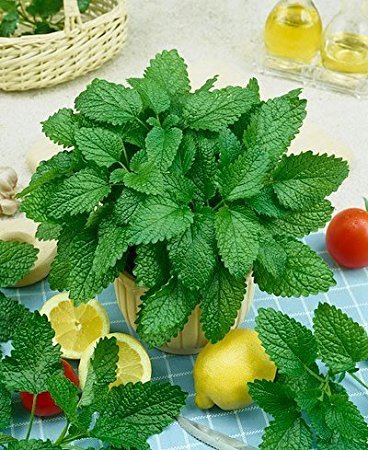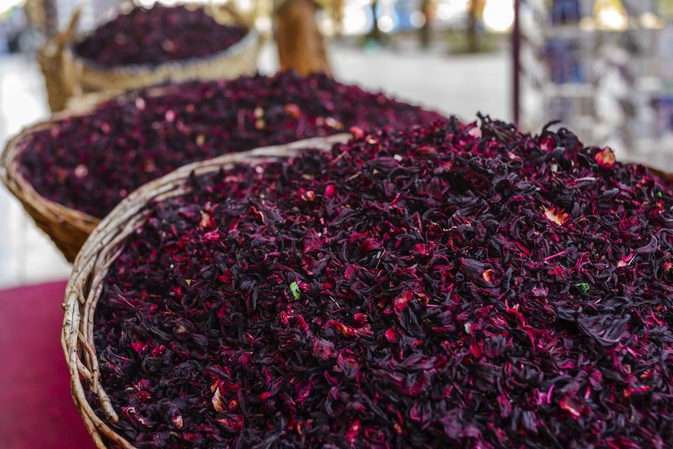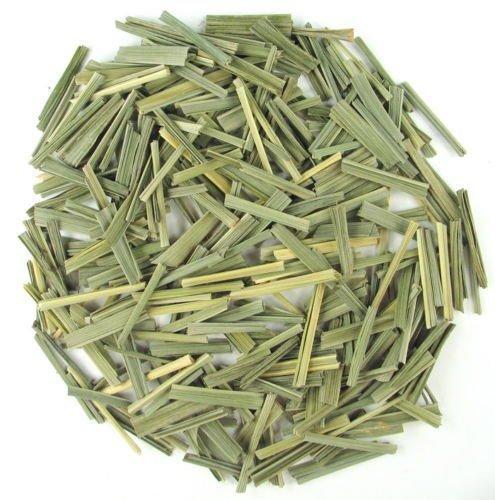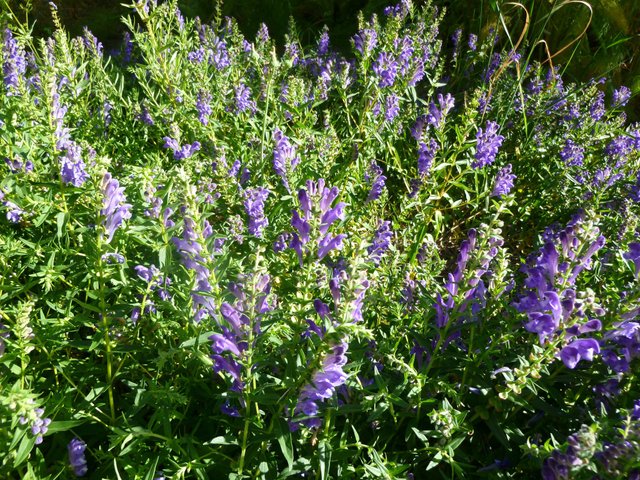Don't want to get the cold or flu and want to prevent as well as treat it naturally? Drink my Witches brew.

Hello my Steemian friends. The brew i wish to talk with you about today i called the Witch brew. Containing very powerful herbs collected world wide into a very potent wellness product.
I'm not here to sell it to you in some form of advertisement. This is for the well being of the body mind and soul. Plants are our teachers if we wish to listen, evolving along side organisms that feed us with oxygen, our minds and bodies. That give us their lives which we take to increase our quality of life such as textiles, building materials, oils along with beautiful scenery. Plants are very important to the longevity of the humans species as well as all others. Lets take a moment to learn about our plant teachers in the witches brew. A warning that some of these herbs may be dangerous to those who have low blood pressure. As the brew regulates blood pressure among other things, before making the tea do some research on the negative effects of these plants and consult your doctor if this brew is safe for you. The majority though will be able to drink this tea with relative safety.
Lemon balm 
https://www.globalhealingcenter.com/natural-health/9-benefits-of-lemon-balm/
For 4 cup recipe use 3-4 tea spoons in a medium sized infuser
Calms the Mind
Lemon balm has been used for centuries to care for wounds and quell sleeplessness. Some attest that the pure, sweet aroma of the oil promotes a feeling of relaxation. Most sweet oils are said to provide the same benefit.Encourages Restful Sleep
Lemon balm encourages restful sleep, especially for those who have trouble falling asleep. In one study, parents reported their children slept more peacefully throughout the night with lemon balm supplementation. It doesn’t only benefit restless children and their sleep-deprived parents. A placebo-controlled trial found that menopausal women suffering from interrupted sleep reported much better rest after taking a lemon balm and valerian extract.Improves Skin Appearance
The first cosmetic use of lemon balm goes back to the 14th century when the Queen of Hungary reportedly used it to erase years from her face by softening wrinkles. Today, it’s still recommended for boosting the appearance of skin and reducing the appearance of fine lines. Lemon balm also contains volatile components, such as caffeic acid, p-coumaric acid, and rosmarinic acid, that work together to support the body’s natural response to the harmful organisms that cause lip blemishes.Boosts Alertness
Although lemon balm calms the mind, it certainly doesn’t dull the mind. In the right serving, it does the exact opposite. An Australian study reported improved alertness in participants who took the herb. The reported side effects, if you can call them that, included calm feelings and a positive mood.Sharpens Memory and Problem Solving
Studies like the one above observed improved memory and problem-solving in test subjects, regardless of age, after taking lemon balm. Young or old, those taking lemon balm supplements displayed improvement in problem-solving skills and recall.
Though preliminary, some studies have examined lemon balm and its relation to brain health. When combined with acupuncture, eugenol, a powerful antioxidant in lemon balm, helped test subjects recover memory-related functions.[4] Another study showed participants had significant improvements in brain function after 16 weeks of administration of a lemon balm extract containing 500 mcg of citral—a component of lemon balm oil.
Another study reported that lemon balm helps stimulate memory and enhance mood. A phytochemical found in lemon balm suppresses the enzymes that break down the neurotransmitter responsible for memory and thought.
Powerful Antioxidant
Lemon balm is loaded with antioxidants that protect cells from free radicals. Studies on eugenol and rosmarinic acid show they support healthy brain aging. The list of powerful antioxidants includes ferulic acid, caffeic acid, and quercetin.Supports the Liver
The liver detoxifies dangerous compounds from the body and, over time, can become tired and sluggish, especially if you follow an unhealthy diet. Animal studies have found that lemon balm is effective at protecting the liver from some of the negative effects of an unhealthy diet.[7] Lemon balm also supports the liver’s production of two important antioxidants—glutathione and superoxide dismutase.Supports Normal Blood Sugar
Many herbs that provide antioxidants also promote balanced blood sugar. Although preliminary, research suggests that lemon balm may encourage normal blood sugar levels.Protects Brain Cells
Beyond the positive effects on memory, thinking, and mood, research suggests lemon balm supports brain health. Antioxidants like eugenol detain free radicals before they can attack brain cells.[10] Rosmarinic acid, a key compound in lemon balm, is beneficial in this regard. If the brain doesn’t get enough blood, it can quickly become an emergency that affects brain function. Animal models show that, when provided shortly after such an episode, lemon balm appears to protect the brain.
Hibiscus
https://www.organicfacts.net/health-benefits/beverage/hibiscus-tea.html
for 4 cup recipe use 5-8 pedals
The health benefits of hibiscus tea, also known as Agua de Jamaica, include its ability to treat high blood pressure, high cholesterol, disturbed digestive and immune system, and inflammatory problems as well. It helps cure liver diseases and reduces the risk of cancer. It can also speed up the metabolism and help in healthy, gradual weight loss. It is rich in vitamin C, minerals, and antioxidants and helps in the treatment of hypertension and anxiety.
Hibiscus tea is prepared by boiling parts of the hibiscus plant, known by its scientific name Hibiscus sabdariffa, particularly the flower. It is a very popular beverage throughout the world and is often used as a medicinal tea. Hibiscus flowers have various names and are known as “Roselle” in some places.
Hibiscus tea is ruby red in color and has a sour taste. Therefore, it is also known as sour tea and has a flavor similar to cranberry. It is widely available in the market throughout the tea-drinking world and can be consumed hot or cold depending on your preference. This tea is low in calories and is caffeine-free.
Manages Blood Pressure
A report from the AHA (American Heart Association), published in November 2008, states that consuming this tea lowers the blood pressure in pre-hypertensive and mildly hypertensive adults. It also states that 1/3 of adults in the United States suffer from high blood pressure, which is also called hypertension. A study conducted by Odigie IP suggests that it has antihypertensive and cardioprotective properties, which can be beneficial for people suffering from hypertension and those at high risks of cardiovascular diseases.
Because of its anti-inflammatory properties, hibiscus tea can reduce blood pressure by up to 10 points, according to a research done at Tufts University in Boston. For this drastic improvement to occur, you need to regularly consume three cups of this tea every day for a few weeks. Also, it has diuretic properties that increase urination and simultaneously lower blood pressure.
Stinging Nettle
4 cup recipe 2-4 teaspoons
https://www.organicfacts.net/health-benefits/herbs-and-spices/stinging-nettle.html
The most important health benefits of stinging nettle include its ability to detoxify the body, improve metabolic efficiency, boost immunity, increase circulation, improve energy levels, manage menstruation, minimize menopausal symptoms, and aid in skin care. Stinging nettle has the power to protect the kidney and gallbladder health, lower inflammation, increase muscle mass, regulate hormonal activity, prevent diabetes, lower blood pressure, soothe hemorrhoids, and improve respiratory conditions.
This herbaceous flowering plant may be considered as an annoyance to many when they brush against its sharp, stinging leaves, but for thousands of years, people around the world have used stinging nettle to treat a variety of health conditions. Its scientific name is Urtica dioica and the plant is one of six subspecies within the Urtica genus. The native range of stinging nettle, also known as common nettle in some places, is extensive, including Africa, Europe, Asia, and North America. The plant itself is relatively small, rarely growing past five feet in height. The leaves and stems in some of the subspecies have long stinging hairs that inject an array of chemicals when touched, including histamine, formic acid, serotonin, and acetylcholine. This produces an irritating, uncomfortable sensation in the skin, which is why other common names for stinging nettle are burn weed and burn nettle.
However, once you boil these stems and leaves or extract the powerful oils, the stinging substances are neutralized and the real benefits of the plant can be enjoyed. Some cultures even make nettle soup or include it in cheese-making to add some healthy boost to their meals. Stinging nettle leaves are most commonly brewed as tea, which captures many of the essential health benefits, but the plant can also be applied topically in the form of an oil extract. However, be sure to combine this natural oil with carrier oils, as it can be extremely potent.
Word of Caution: While many of these benefits seem miraculous, it is important to remember that some of these remedies for high blood pressure, high blood sugar, and menstruation can also have a flip-side. For example, if you have low blood pressure, low blood sugar or are early in your pregnancy, this plant can be dangerous. Before adding such a potent and comprehensive herbal remedy to your diet, be sure to consult a physician and ensure that you won’t be complicating any ongoing treatments.
Lemon grass
https://www.organicfacts.net/health-benefits/herbs-and-spices/health-benefits-of-lemongrass.html
4 cup recipe 2-4 tea spoons
The health benefits of lemongrass include relief from stomach disorders, insomnia, respiratory disorders, fever, aches, infections, rheumatism, and edema. The defensive antioxidant activity of the lemongrass herb protects against antibiotic-resistant Staphylococcus aureus and helps in maintaining optimum cholesterol levels, cellular health, nervous system, healthy skin and immune system. It is also effective in treating type 2 diabetes, cancer, and obesity, while also aiding in detoxification. It is extensively used in aromatherapy and helps combat fatigue, anxiety, and body-odor.
Lemongrass – An Aromatic Healer
Cymbopogon citratus, also known as lemongrass, is an herb which belongs to the grass family of Poaceae. It is utilized for its distinct lemon flavor and citrusy aroma. It is a tall, perennial grass which is native to India and tropical regions of Asia. It is a coarse and tufted plant with linear leaves that grows in thick bunches, emerging from a strong base and standing for about 3 meters in height with a meter-wide stretch.
In addition to its culinary usage, lemongrass offers an array of medicinal benefits and is in extensive demand due to its anti-bacterial, anti-fungal and anti-microbial properties across Southeast Asia, as well as the African and American continents.
The genus Cymbopogon comprises of 55 species of grasses, two of which are referred to as lemongrass. These are Cymbopogon citratus, which is famously preferred for culinary use and Cymbopogon flexuosus, which is used in the manufacturing of fragrances because of its extended shelf life, owing to the low amount of myrcene in that variety.
Lemongrass Nutrition Facts
Lemongrass is an aromatic storehouse of essential nutrients providing an array of health benefits. It is a source of essential vitamins such as vitamin A, vitamin B1 (thiamine), vitamin B2 (riboflavin), vitamin B3 (niacin), vitamin B5 (pantothenic acid), vitamin B6 (pyridoxine), folate, and vitamin C. It also provides essential minerals such as potassium, calcium, magnesium, phosphorous, manganese, copper, zinc, and iron, which are required for the healthy functioning of the human body. It offers no harmful cholesterol or fats.
Health Benefits Of Lemongrass
Lemongrass contains antioxidants, flavonoids and phenolic compounds such as luteolin, glycosides, quercetin, kaempferol, elemicin, catechol, chlorogenic acid, and caffeic acid, all of which help in providing an impressive range of medicinal aids. The main component of lemongrass is lemonal or citral, which has anti-fungal and anti-microbial qualities, while also providing a distinct lemony smell.
Scullcap
https://www.organicfacts.net/health-benefits/herbs-and-spices/skullcap.html
4 cup recipe 2-4 teaspoons
The most important health benefits of Skullcap include its ability to prevent certain cancers, reduce anxiety, soothe the nervous system, treat diabetes, aid in weight loss, lower inflammation, balance hormones, and regulate sleep.
Skullcap is the name of a flowering perennial plant from the mint family, Lamiaceae. With the scientific name Scutellaria lateriflora, this plant can be found in North America’s wet habitats. There are a few names for skullcap, including mad dog and blue skullcap. Both of them describe a hardy, moderate size plant with blue or purple flowers from the leaf bases on the main stem. While other species use the name skullcap and even have similar properties, the blue one is deemed best, as it has the widest range of uses and powerful chemical compounds.
The range of health benefits enjoyed by frequent users of skullcap is due to the presence of various phenolic compounds and flavones that impact the body in many different ways.
The plant was traditionally used by native Americans for hundreds of years. The extracts of American skullcap are also valuable for certain health conditions.
Word of Caution: Avoid excess intake of this herb as it may cause giddiness, nausea, and lightheadedness, as well as seizures in extreme cases. Always get it from a trusted, certified source, and don’t combine it with other medicines, unless you specifically discuss the choice with your doctor.

https://www.organicfacts.net/health-benefits/herbs-and-spices/st-johns-wort.html
4 cup recipe 1-2 teaspoons
The impressive health benefits of St. John’s wort include its ability to treat depression, improve mood swings, relieve anxiety, reduce the severity of pre-menstrual symptoms, ease addictive tendencies, regulate hormonal activity, prevent cancer, protect against viral infections, reduce inflammation, and soothe the nervous system.
St. John’s wort has become extremely popular in recent decades as a potential cure-all herbal remedy for many health issues. Unlike other herbal treatments, many of its health benefits have been verified by the scientific community and its herbal supplements are commonly prescribed by medical professionals. St. John’s wort is a small flowering plant from the Hypericum genus that has the scientific name of Hypericum perforatum, and it grows wild in Europe, but has since spread to the Americas, Russia, Asia, China, and the Middle East. You might know St. John’s wort by a different name, such as rosin rose or goatweed, but they all have the same impact. The vast range of its health benefits make it an important factor in herbal supplementation, and it is now widely available throughout the world.
St. John’s wort can be found in capsule, tincture, oil or raw form. The chemical constituents of St. John’s wort include bioflavonoids and a range of antioxidants that can have a significant impact on the hormonal, physical, and chemical behavior of the body. While the components can be very valuable to human health, there are also a number of side effects or complications that can arise with the use of St. John’s wort in combination with certain conditions or medications. Consult your doctor before using St. John’s wort.
New research has recently come to light saying that St. John’s wort has certain antiviral capabilities, which reduce the risk of AIDS, hepatitis, and other serious viral conditions. The only problem with this is that very high doses of it are required for this sort of antiviral effect, which would also cause a range of unpleasant side effects.
Cancer research has recently begun putting more faith in the role that St. John’s wort could play. Laboratory research has also shown a definite correlation between the prevention and treatment of leukemia with consistent use of St. John’s wort supplements.
Word of Caution: The most common negative effects of St. John’s wort are dizziness, nausea, fatigue, and confusion. These effects generally occur in people with diagnosed bipolar disorder and schizophrenia. St. John’s wort can also be a dangerous mix with a variety of medications. It is essential to discuss your current conditions with a physician before adding this herb to your supplement regimen.
A combination of these herbs are a sure fire way to fight any cold and flu, try this recipe for yourself, reduce quantities based on how big a batch you create. Gain massive amounts of nutrients from these plants, and immunity boosting properties to increase the longevity of life.
Your friend watching over you - All Seeing Eye

图片看上去很诱人,很想来一杯,哈哈
芙蓉会将茶染成深红色,最终的茶看起来像是图片,但是颜色更深。这是一种非常愉快的茶,口感非常好,营养丰富。
Excellent Post! Thanks for sharing are natural medicinal alternatives that benefit our health in the best way. And the drink is totally attractive..Excellent presentation @ all.seeing.eye
Thank you very much for your heart warming comment it means a lot to me. Feel free to subscribe for future content so that i may reach deeper into the steemit audience to premote uplifting content such as this.